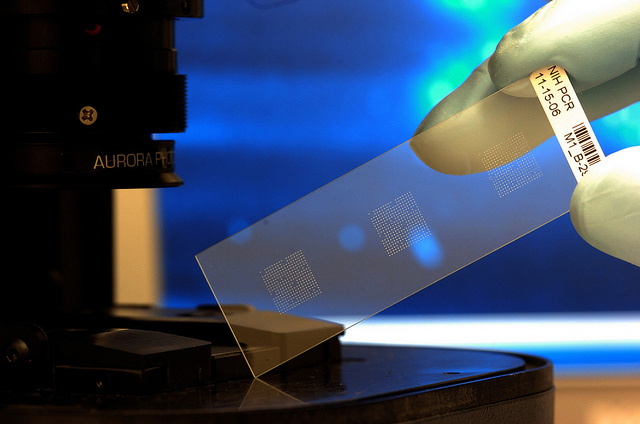By: Imelda V. Abaño
Send to a friend
The details you provide on this page will not be used to send unsolicited email, and will not be sold to a 3rd party. See privacy policy.
[MANILA] A microchip that can test a single blood sample for 15 major tropical diseases with the aim of making it easier to detect illnesses such as malaria and dengue fever, has been launched.
Many tropical diseases affecting South-East Asia cause similar symptoms, for example fever, making them hard for doctors to accurately diagnose at an early stage, says Lisa F.P. Ng, lead virologist for the project and an associate professor at Singapore's Agency for Science, Technology and Research (A*STAR).
Ng says the VereTrop biochip, which took three years to develop, can detect and identify 26 different types of pathogens that cause 15 types of disease from whole blood or serum samples.
As well as malaria and dengue fever, the chip detects Chagas disease; sleeping sickness; typhoid fever; yellow fever; West Nile fever; Rift Valley fever; leptospirosis; melioidosis; chikungunya fever; hand, foot and mouth disease; Japanese encephalitis; hantavirus cardiopulmonary syndrome and haemorrhagic fever with renal syndrome.
The kit was launched by A*STAR together with Veredus Laboratories, a supplier of molecular diagnostic tools, in Singapore last month (25 April).
A*STAR spokesperson says that the chip's accuracy ranges from 85 to 98 per cent depending on the disease it is trying to detect.
François Nosten, director of the Shoklo Malaria Research Unit in Mae Sot, Thailand, says: "This technology opens new possibilities for the accurate and rapid diagnosis of important infectious diseases that remain the main causes of illness in the tropics. Its versatility and ease of use will change the approach to diagnostics at the periphery of the healthcare system."
Rosemary Tan, chief executive officer of Veredus Laboratories, says the chip is now available for global distribution.
However, each of the single-use biochips costs US$100.
Jaime Montoya, executive director of the Philippine Council for Health Research and Development, thinks this is too expensive for many developing countries.
Some of the diseases are not even present in some countries, creating an unnecessary costs to them if they use the chip, he says.
He adds that, despite the big initial investment, it might be better for countries to develop similar chips themselves especially if that can bring down the price.














